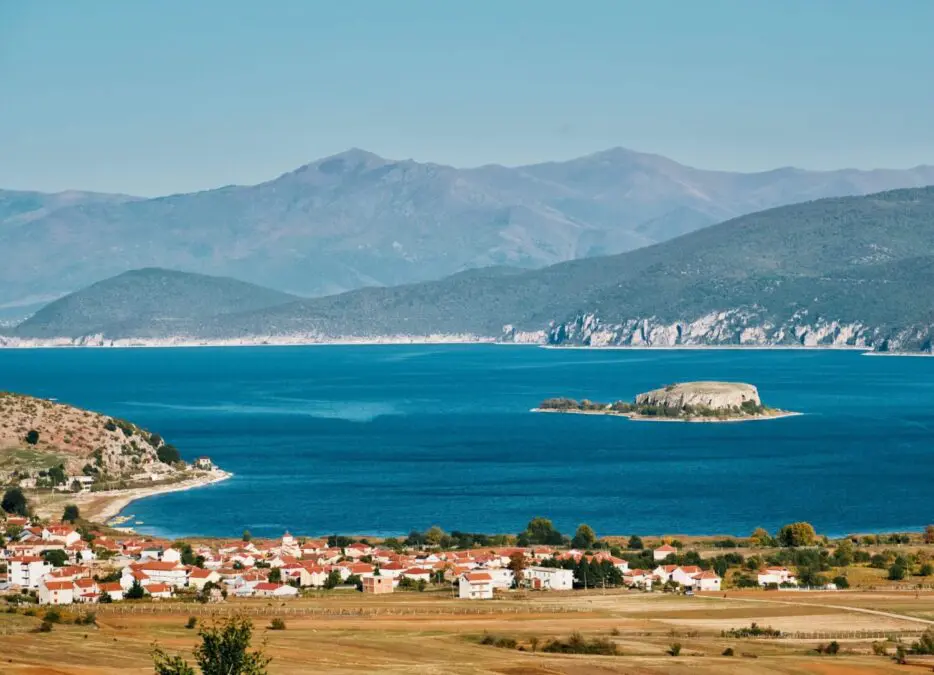After millennia, Lake Prespa under the pressure of climate change, uncontrolled pumping and pollution, the prehistoric reservoir in southeastern Europe is shrinking at an alarming rate, reports AFP.
Lake Prespa, which straddles the borders of Albania, Greece and North Macedonia, is believed to be home to thousands of species that rely on the water and surrounding habitats.
Warming temperatures have wreaked havoc on the region’s annual snowfall, drying up vital streams that flow into the Prespa – putting species that depend on the lake and another nearby body of water at risk.
According to park rangers who closely monitor the lake, the drop in rainfall has led to a steady receding of the water, which has receded up to three kilometers (nearly two miles) in some places.
“Earlier there was a lot more snow, which could reach a meter or a meter and a half, while in recent years there has been almost no snowfall,” Goran Stojanovski, a 38-year-old ranger who has been monitoring the lake in North Macedonia for more than a decade, told AFP.
Other experts agree, pointing to the many ways in which the effects of climate change have caused its shores to shrink steadily.
“The observed changes in the lake level are related to climate change,” said Spase Shumka, a professor at the Agrarian University in Tirana, the capital of Albania.
Shumka pointed to higher temperatures, which have also increased evaporation and reduced annual precipitation.
“Based on the location, the only solution is in joint action,” added the professor.
Adding to Prespa’s problems is the fact that surrounding apple farms rely heavily on the lake’s water, with one study cited by NASA stating that the lake lost seven percent of its surface area and half of its volume between 1984 and 2020
Environmental pollution from agricultural run-off from the seemingly endless rows of nearby orchards only adds to its problems, leading to algal blooms that raise concerns about creating dead zones.
“The lake has been intensively polluted for decades,” says Zlatko Levkov, a biologist at Cyril and Methodius University in Skopje.
“Put simply, the habitat of many species may change completely, and the population of those species may decline and eventually disappear.”
According to experts, the Prespa filled this picturesque valley in southeastern Europe for between one and five million years, making it one of the continent’s oldest freshwater ecosystems.
About 2,000 species of fish, birds and mammals, as well as a number of plant species, depend on its waters for sustenance.
Further deterioration could prove catastrophic for the local ecosystem, but also for the neighboring Lake Ohrid, located 10 km to the west.
Because Prespa is located on higher ground, Lake Ohrid relies on underground water flows through the surrounding limestone mountains to maintain its level.
Any additional strain on Prespa is likely to be felt downstream in Ohrid, which just two years ago was at risk of losing its place on the UNESCO World Heritage List due to excessive pollution and unregulated development.
Illustrative Photo by Valter Zhara:







